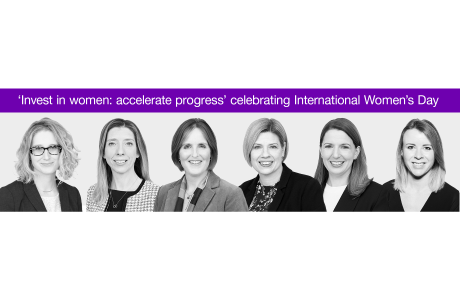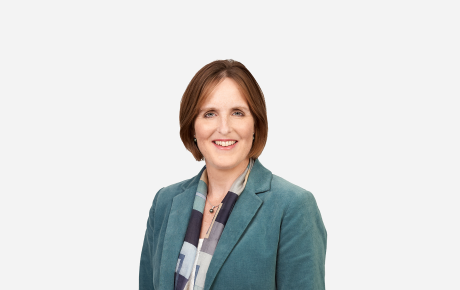
The Chief Executives' view: reasons to be cheerful
Inga Beale, Lloyd’s Chief Executive Officer, and Bronek Masojada, Hiscox’s Chief Executive, discuss how to ensure the London Market continues to thrive.
1. Do you agree with the London Market Group’s analysis?
Inga: The LMG report very much reflects Lloyd’s thinking in this area. London’s position as a global hub for insurance is under competitive threat with some customers preferring to buy in their local markets where capacity and expertise is increasingly available. We also see that expense ratios are higher than competitors around the world driven by higher acquisition and transaction costs. I am optimistic about what the future holds for the London Market, provided we embrace the challenges we’re facing – and not shy away from tackling them head on.Yes, there is competition, but the flip side is that there is a vast, practically untapped, market out there for the kind of specialised cover that the Lloyd’s market excels in offering. There's also a great opportunity for the London Market to take the lead in modernising and using technology to streamline our processing of business.
Bronek: If the threat of 30-40% of London’s premium – that’s £12-16bn – going elsewhere doesn’t persuade us all of the need for change then we might as well switch off the lights now.
Despite the challenges, I think the report gives a number of reasons to be optimistic, not least in the scale of the opportunity when it comes to flexing our collective muscles in areas of new and emerging risk, such as cyber. Innovation should be what London does best.
The barriers to entry in our business have lowered and while reputation still counts it can’t secure London’s future alone.
2. Can London continue to rely on its reputation as a centre for speciality insurance in an increasingly global insurance industry?
Bronek: Maintaining a good reputation is critical for any brand. As Robert Hiscox drummed into me, “You can lose my money, but never risk my reputation; it’s much harder to win back.” London needs to live up to the great reputation for innovation and paying claims that has been the foundation of its success. However, you can have the best reputation in the world, but it matters for little if you can’t deliver what your customers want, at a competitive price, when others can.
The barriers to entry in our business have lowered and while reputation still counts it can’t secure London’s future alone.
Inga: London has always been a centre of excellence and innovation, and the square mile we work in continues to excite. But we can’t continue to rely on innovations of the past. The corporate-risk map has shifted: Loss of data and reputational damage is now as feared [by corporates] as fire and flood. One CEO said in the London Matters report that only 10 per cent of corporate risks are covered, because the right products simply don’t exist. The Lloyd’s market is already working to develop new solutions to close that gap.
We are also looking at where, not just how, we do business. Brazil, China, India – these are countries with huge potential, but we can’t sit back and wait for these markets to come to us. We need to go out there and prove our value and be part of their growth stories.
3. How does London reach out beyond its traditional foreign markets – the USA, northern Europe, Australia, South Africa – to emerging, high-growth markets?
Inga: We must work to feel local and relevant to customers, cedants and brokers who are on the other side of the world. This may mean building an on-the-ground presence and it certainly means we need to start hiring new diverse talent that understands these relatively new markets and business cultures. Lloyd's is tackling this by increasing its global market access with new licences around the world, and also enhancing our understanding of the local risk environments. But it also means making it as easy as possible to place business with underwriters in London. We need to remove the London quirks in the system and that is why we’re working hard on modernising the systems in place in the market.
Brazil, China, India – these are countries with huge potential, but we can’t sit back and wait for these markets to come to us.
Bronek: I agree, we need to make it easier for them to place business with us, while delivering better products than they can get elsewhere. We also need a less London-centric view of life. How ethnically diverse is the talent we have in our market for example? How many Mandarin speakers do we have? Hindi? Urdu? We can’t exist in a bubble and hope to compete.
Of course there is also a big marketing job to be done. As the report highlights, we’re collectively a £60 billion premium business, but do we market ourselves like a £60 billion business would?
4. The LMG report identifies that London's costs were nine percentage points higher than its peers in 2013. How can London tackle its higher cost base?
Bronek: The costs of doing business in London have long been too high, and, as the other advantages of bringing business to London are gradually outstripped by other markets, these costs can no longer be sustainable. Better use of technology is a given, but, in areas where there are no obvious benefits to the client, why are we all competing to deliver the same thing? We should compete as a market in areas where we can deliver better value than our competitors, not in areas where processes can effectively be mutualised at much lower cost to us and our clients.
Inga: We deal in data and promises to pay so theoretically our processing should be easy - we're not manufacturing physical goods or having to run vast distribution networks like an Amazon does. A future operating model for the market is being developed and the time to act is now.
Unlike previous efforts, we're experiencing collaboration across the market - Lloyd's, company carriers and brokers - like we've not seen before.
5. What opportunity is there for London to use technology to gain a competitive advantage?
Inga: There is huge opportunity in improving our paper-based processes. We have endless processes for entering, amending, matching and reconciling data. That imposes large costs and turns off potential clients and market entrants. Just looking at the advances made already in the worlds of banking or travel - we know change and modernisation is possible. The operating model work will lay out clearly all the areas to be modernised, starting with electronic placing all the way through to post-bind processing and reporting. The opportunity is huge and should not be seen as a threat to the way existing business is done. Relationships will still remain key to the market but by using technology the processing of data will be streamlined and, before too long, policyholders will actually be able to track their claims real time as they move through the system.
Bronek: We need to think of ourselves as more like an IT company that happens to sell insurance. Technology should remove the frictional costs of doing business, while improving access for those emerging markets. It’s clear we’re nowhere near exploiting the benefits that technology can offer. One of the problems has always been designing systems to suit our business, rather than starting out with what the customer wants and working backwards.
We’re all very different. It’s a weakness but also a strength of the market.
6. The London Market comprises many different players. How can it generate consensus for the bold strategic decisions to tackle the issues highlighted in the report?
Bronek: We’re all very different. It’s a weakness but also a strength of the market. Being different though doesn’t mean we can’t have a common cause and the report does a great job of identifying that. Consensus building is difficult but there really is no choice if this market is to survive.
Inga: I believe there is broad consensus amongst the various market stakeholder groups that the market needs to modernise. As part of the LMG target operating model work, we have spoken with more than 120 representatives from across the market and all endorsed the core objectives. We now need to turn that endorsement and collaborative spirit into concrete action. This will be done by working with the market and planning the work on a phased basis over the next three to five years.
7. What does the government need to do to help improve the London Market's competitiveness?
Inga: The Government has recognised the value of the London Market and asked for our input in the recent budget. One concrete commitment to come out of that was to look into favourable tax and corporate structures to enable an ILS market to operate in the UK. We also asked for due consideration to be given to the regulatory environment to ensure it's not a barrier to us being the market of choice.
The UK’s role in Europe is, of course, one area of uncertainty. We want Europe to become more competitive – but, of course, there is no doubt that UK membership of the European Union is an important component of London’s attraction to the worldwide financial services community. So if a referendum takes place, we hope a thorough debate takes place where the data and facts take centre stage.
Bronek: Provide a level playing field. London can only compete internationally if its regulatory and legal hurdles are no higher than its competitors’. As a market, we contributed 21% of the City of London’s GDP in 2013. That statistic alone should guarantee us a place at the top table, but we must push to make sure our collective voice is heard.
8. How optimistic are you for the future of the London Market?
Bronek: Like Mark Twain’s ‘death’, rumours of the London Market’s imminent demise may have been exaggerated. But we can’t be complacent. Look at how the reinsurance market has been turned upside down in such a short time. If we had failed to adapt, we’d be out of the reinsurance business. Reinsurance is the ‘canary in the mine’ and we have only ourselves to blame if we fail to act on the early warning.
There are reasons to be cheerful and the report identifies at least four. As a market we should be optimistic – why do the world’s biggest brokers continue to base their major operations within a stone’s throw of Lime Street? But London must change if it isn’t to become a sideshow.
If the collective will is there – and I see no reason why it shouldn’t be – we have every opportunity to cement London’s position at the forefront of this industry for many years to come.
We couldn’t possibly have lasted over three centuries if change and innovation weren’t in our DNA. But the next few years will be critical.
Inga: I feel very optimistic about the future. I remember being an underwriter in the days when the company and Lloyd's market were quite separate – separate slips, separate leaders, separate processing centres, etc. But that has changed. Look at Lloyd's and how it has shifted from predominantly private capital to predominantly corporate. Lloyd’s has always adapted to change and will continue to do so. We couldn’t possibly have lasted over three centuries if change and innovation weren’t in our DNA. But the next few years will be critical. We can’t sit back and wait for business to come to us. We have to go out there, fight to get it, be innovative and provide the latest specialist products available in the market.




